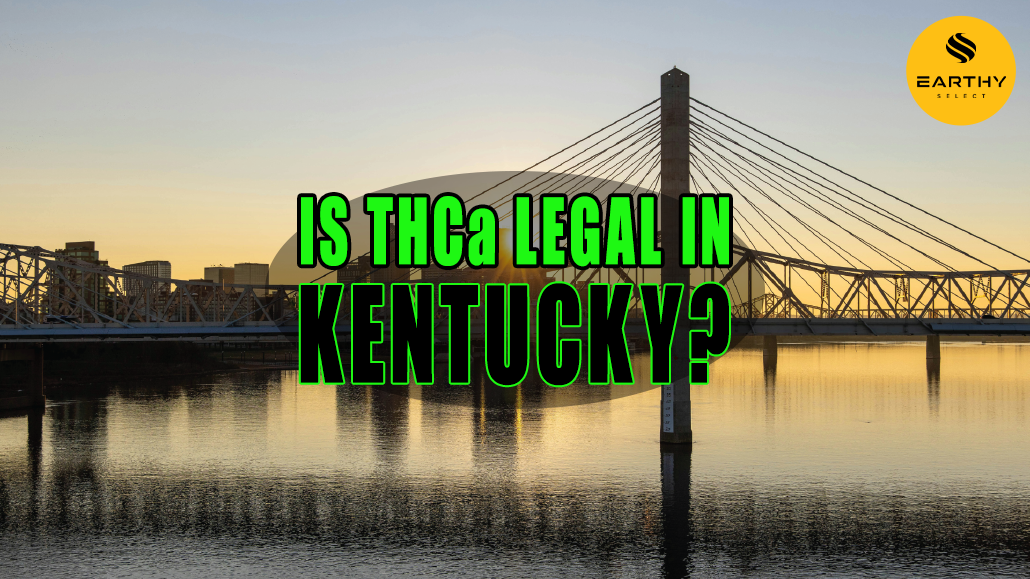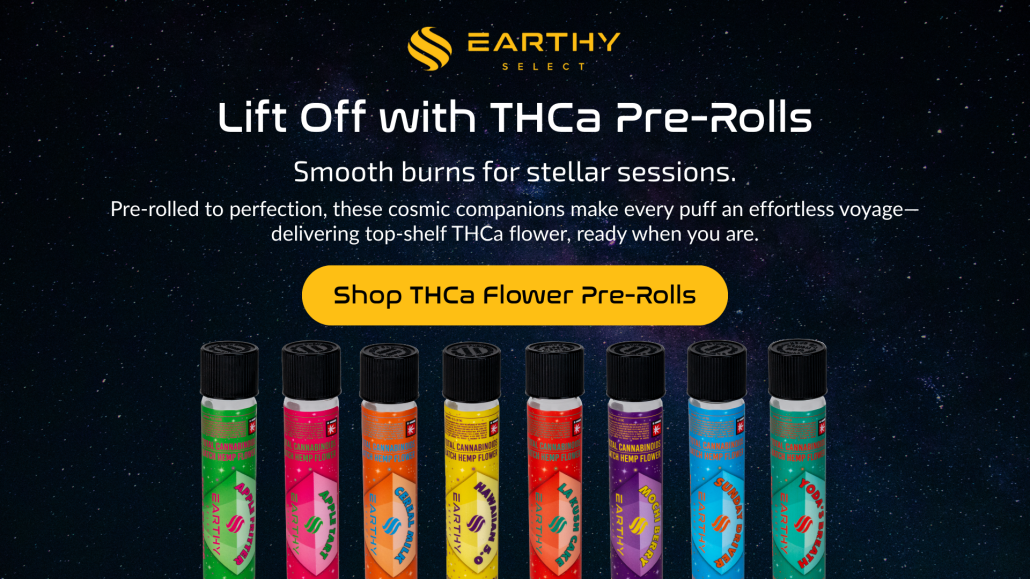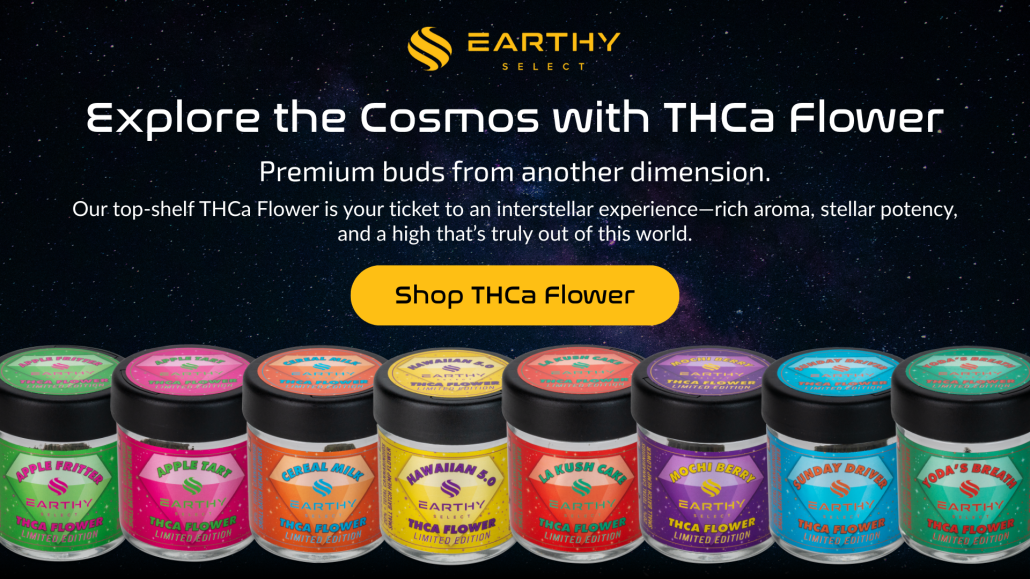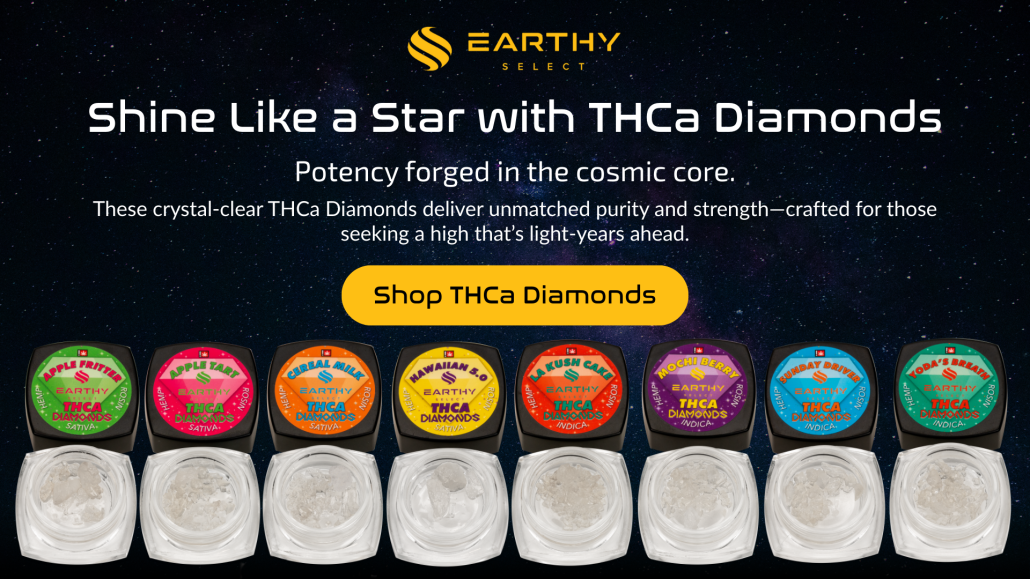Kentucky THCa Regulations and What They Mean for You
Key Takeaways
- THCa’s legal status in Kentucky is murky, with the state adhering to the federal 0.3% Delta-9 THC limit but lacking clear guidance on THCa itself, leaving consumers in a gray area.
- Federal hemp laws under the 2018 Farm Bill allow THCa products if they contain less than 0.3% Delta-9 THC, but Kentucky’s strict cannabis regulations and inconsistent enforcement create risks for consumers.
- To navigate THCa safely in Kentucky, consumers should source products from transparent vendors with third-party lab reports, ensuring compliance with THC limits and avoiding potential legal issues.
THCa is becoming more widely discussed in Kentucky, though its legal status remains somewhat unclear. While federal law permits certain hemp-derived cannabinoids like THCa, Kentucky’s state regulations are not always explicitly defined. For those considering THCa products or planning to travel with them, staying informed about current laws is advisable.
At Earthy Select, we focus on providing premium, federally compliant THCa Hemp Flower and other THCa products, while monitoring regulatory developments. Before purchasing or using THCa in Kentucky, gaining an understanding of the legal framework may help ensure a more confident experience.
Kentucky’s THCa Laws Explained
What is THCa, and what is THCa’s legal standing in Kentucky? These are common questions. THCa, the non-psychoactive precursor to THC that becomes active when heated, exists in a somewhat ambiguous position under both federal and state laws. The 2018 Farm Bill legalized hemp products with no more than 0.3% Delta-9 THC by dry weight at the federal level, which may include THCa if it meets this threshold [1].
Kentucky generally follows federal hemp guidelines but maintains a cautious approach to cannabis overall. The state has not provided specific legislation or clear guidance on THCa directly. It’s worth noting that regulators and law enforcement might consider the “total potential THC” after decarboxylation (heating THCa into THC), which could raise concerns if levels exceed 0.3% Delta-9 THC [2].
Essentially, while hemp-derived THCa products are often permitted under federal law, the absence of explicit state-level protection for THCa flower or concentrates in Kentucky may create uncertainty for both consumers and retailers. Until more definitive guidance is available, a measured approach is recommended. Ensuring products are accompanied by lab reports verifying THC limits could be beneficial.
Learn more about THCa vs Delta-9 THC.
Why THCa Is Treated Differently Than Cannabis
THCa, or tetrahydrocannabinolic acid, is the non-psychoactive precursor to THC present in raw cannabis. Unlike THC, it does not induce a “high” until it undergoes decarboxylation through heating. This distinction often shapes how THCa is viewed under legal frameworks.
Under the 2018 Farm Bill, hemp-derived products with less than 0.3% Delta-9 THC are considered federally legal. Since THCa is not psychoactive in its raw form and is not classified as Delta-9 THC until converted, it may fall within legal parameters if the final THC content remains below the limit [1]. However, in states like Kentucky, there could be scrutiny over THCa’s potential to become THC, leading to a legal gray area depending on how regulations are interpreted.
This nuanced position places THCa in a distinct category—potentially permissible in certain contexts but subject to restrictions in others. The interpretation often depends on how authorities view the science and whether a product could be transformed into THC. For the time being, THCa’s status reflects the broader, intricate legal landscape surrounding cannabis compounds.
How THC Limits in KY Impact Consumers
Kentucky adheres closely to the federal limit of 0.3% Delta-9 THC by dry weight for hemp-derived products. While THCa itself is not psychoactive or explicitly prohibited, its capacity to convert to Delta-9 THC when heated introduces some ambiguity. Thus, law enforcement interpretations may vary across the state, potentially placing consumers in an uncertain legal space [2].
For residents of Kentucky, this could mean that accessing high-quality, lab-tested THCa products might be more challenging. Some may turn to unregulated sources, which could carry legal risks or exposure to contaminants. Without clear state guidance, consumers might encounter additional obstacles in safely and legally accessing cannabis-derived products like THCa.
Federal Hemp Law and Its Role in Kentucky
The 2018 Farm Bill significantly altered hemp policy across the U.S., including in Kentucky. The legislation legalized hemp—defined as cannabis with no more than 0.3% Delta-9 THC by dry weight—distinguishing it from marijuana, which remains illegal under federal law. Although THCa is not specifically mentioned in the bill, regulators may evaluate “total THC” (including potential THC from THCa after heating) to ensure compliance with the 0.3% limit [1].
Kentucky’s hemp program generally aligns with federal standards. Notably, growers and processors are typically required to be licensed, and products, including those with THCa, are subject to testing to confirm they do not exceed 0.3% Delta-9 THC. Ultimately, non-compliance could lead to crop destruction or other legal repercussions [3].
Overall, while the Farm Bill has created opportunities for Kentucky’s hemp industry, the state tends to enforce these regulations with rigor. For those dealing with THCa in Kentucky, adhering to the 0.3% Delta-9 THC limit appears to be a critical factor in remaining within legal boundaries.
The 2018 Farm Bill Framework
The 2018 Farm Bill, formally known as the Agriculture Improvement Act, redefined hemp in the U.S. by legalizing it as cannabis containing less than 0.3% Delta-9 THC by dry weight. The law permits states to develop their own regulations, resulting in a varied landscape of hemp policies nationwide. In Kentucky, hemp-derived products like THCa are often considered legal if Delta-9 THC levels stay below 0.3%, even after potential decarboxylation [1].
However, interpretations can differ, with some emphasizing “total THC” (including potential THC from THCa) and others focusing on Delta-9 content as sold. Generally, growers and sellers in Kentucky are expected to comply with both state and federal testing protocols to maintain legality. While the Farm Bill removed hemp from the Controlled Substances Act, not every cannabinoid, including THCa, is clearly addressed, which may contribute to complexity for producers and consumers [1].
THCa vs Delta-9 THC: Why the Distinction Matters Legally
THCa (tetrahydrocannabinolic acid) serves as the non-psychoactive precursor to Delta-9 THC, the compound responsible for the psychoactive effects associated with cannabis. THCa converts to Delta-9 THC only when heated, such as during smoking or vaping. This difference is significant under the 2018 Farm Bill, which sets a limit of 0.3% Delta-9 THC by dry weight for hemp-derived products. Since THCa is not specifically mentioned, products might be considered legal as long as Delta-9 levels remain under this threshold prior to heating [1].
However, the potential for THCa to transform into Delta-9 THC can complicate matters. Federal and state authorities, including those in Kentucky, may increasingly scrutinize these regulations, suggesting that THCa’s legality could depend on enforcement and interpretation. While the scientific aspect is relatively straightforward, the legal framework continues to evolve.
Buying THCa in Kentucky: What Consumers Should Know
Thinking about purchasing THCa in Kentucky? While it may be federally legal if it is at or below the 0.3% Delta-9 THC limit, Kentucky has not issued explicit clarification on its stance regarding THCa. Given that THCa can convert to THC when heated, there’s a possibility that authorities might classify it as a controlled substance if levels exceed legal limits after decarboxylation [2].
For those who decide to purchase, it’s often prudent to choose trusted vendors who provide third-party lab reports confirming that Delta-9 THC levels are within legal parameters. Many stores in Kentucky may not carry THCa flower, prompting consumers to explore online options.
In summary, if you’re considering THCa in Kentucky, a cautious approach is advisable, along with an awareness of potential legal considerations before purchasing or using any product.
Where You Can Purchase THCa Products
In Kentucky, one of the more reliable options for purchasing THCa products may be through reputable online retailers who offer third-party lab reports and adhere to federal regulations under the 2018 Farm Bill. Online platforms often provide greater variety and convenient shipping, though it’s wise to verify that the retailer ships to Kentucky and that their products meet the 0.3% Delta-9 THC limit by dry weight [1].
Locally, certain smoke shops or hemp dispensaries in larger cities such as Louisville or Lexington might stock THCa products. When purchasing in person, requesting lab results to confirm potency and purity is often recommended. Whether shopping online or in-store, prioritizing transparency and compliance may help ensure access to safe, high-quality THCa products.
What to Look for in THCa Flower
When considering THCa flower, the focus should extend beyond simply seeking the highest potency or most appealing strain name. This market is guided by scientific standards, and overlooking key details could impact quality and safety. THCa flower, the raw, unheated form of THC, may offer unique benefits for cannabis enthusiasts in states with strict marijuana laws. However, not all flower meets the same standards, and the difference between high-quality and lower-quality options often hinges on transparency, particularly lab reports and Certificates of Analysis (COAs).
Potency is a factor, with premium products often showing total cannabinoid content in the range of 20-30%. Beyond the numbers, look for flower that appears to be grown with care—potentially through organic methods on trusted farms or in controlled indoor environments. Risks such as pesticides, heavy metals, and microbial contaminants are often present in unregulated cannabis. Lab reports serve as a safeguard: third-party testing should verify the absence of harmful substances and confirm the cannabinoid profile. If a product lacks a COA, caution is advised.
Staying Safe with Lab Reports and COAs
Certificates of Analysis are more than just documentation—they offer insight into the contents of what you’re consuming. In other words, a credible COA from a DEA-registered or ISO-accredited lab typically details the precise percentages of THCa, THC, CBD, and other cannabinoids, ensuring the product aligns with its claims. Equally important, it screens for contaminants. Cannabis can absorb toxins from soil or air, so without comprehensive testing, there may be risks of ingesting pesticides or other harmful substances. A COA provides assurance that the flower has been evaluated for safety, potency, and purity. In an industry with regulatory ambiguities, this level of diligence is often essential.
Why Certificates of Analysis Matter
It’s important to recognize that not all COAs are equally dependable. Some companies might present incomplete reports or, in rare cases, fabricate them. Careful examination of the details is advisable. Is the lab a recognized, independent entity? Does the report correspond to the specific batch or lot number of the product in question? If the figures seem improbable—such as an unusually high THCa percentage—it may be worth further investigation. The cannabis industry is evolving quickly, yet it retains areas of uncertainty. Thus, staying safe often involves maintaining a degree of skepticism and selecting suppliers who appear to prioritize compliance and quality control.
How to Confirm Compliance with THC Limits in KY
Ensuring compliance with THC limits in Kentucky centers on a fundamental guideline: hemp-derived products are expected to contain no more than 0.3% Delta-9 THC by dry weight. The amount of THCa itself is not the primary focus—it’s the potential Delta-9 THC after decarboxylation that tends to be significant under the law [1].
To confirm that your THCa flower or product adheres to these standards, it’s often recommended to request a current Certificate of Analysis (COA) from the seller. This lab report should clearly indicate the Delta-9 THC percentage on a dry weight basis—levels exceeding 0.3% are typically considered illegal in Kentucky, regardless of the source. For added reassurance, ensure the COA is issued by an accredited third-party lab.
Verify that the COA corresponds to your specific product batch, keeping in mind that regulations may evolve, and discrepancies between batches could occur. Using up-to-date documentation is advisable, and if anything appears unclear, reaching out to the vendor or choosing a source with greater transparency might be a prudent step. Staying informed could help navigate Kentucky’s THC regulations more effectively.
Final Thoughts
Navigating Kentucky’s THCa laws may seem complex, but you don’t need to do so alone. At Earthy Select, we aim to provide safe, compliant THC products, tested thoroughly and grown organically on family farms. Whether you’re in Kentucky or elsewhere, our exotic THCa Flower offers a range of cannabinoid levels for varied experiences, allowing you to tailor your journey.
We strive to follow federal guidelines and work with legal experts to ensure our products meet high standards, even as local laws may shift. For those seeking a different profile, our sister brand Earthy Now offers options with higher CBD and lower THC content. In an ever-changing legal environment, prioritizing quality and compliance is key—consider Earthy Select as a potential resource.
Read more:
Frequently Asked Questions About THCa and Kentucky Law
How does Kentucky define THCa?
Kentucky generally aligns with the 2018 Farm Bill, defining legal hemp as containing no more than 0.3% Delta-9 THC by dry weight. THCa is not explicitly prohibited, though the state may take into account total THC potential after decarboxylation. If a product could exceed the 0.3% limit when heated, it might be classified as illegal marijuana [1][2].
Have THCa regulations in Kentucky changed recently?
As of 2025, there have been no notable changes directly addressing THCa. However, Kentucky’s medical cannabis program, established under Senate Bill 47, began in January 2025, which could potentially influence future cannabinoid regulations. At present, hemp products are expected to comply with federal THC limits to remain legal [4].
What are the penalties for possessing or using illegal THCa in Kentucky?
If a THCa product exceeds the legal THC limit, it may be classified as marijuana. Possession of less than 8 ounces is typically considered a misdemeanor, potentially punishable by up to 45 days in jail and a $250 fine. Larger quantities or distribution could lead to felony charges with more significant penalties [5].
Are THCa Flower and Concentrates Legal in Kentucky?
THCa flower and concentrates may be considered legal if they adhere to the 0.3% Delta-9 THC limit, even after potential decarboxylation. However, testing is often critical, and products exceeding this threshold are generally deemed illegal. Reputable brands like Earthy Select aim to ensure compliance through thorough testing [2].
Can Kentucky medical patients purchase and use cannabis?
As of January 2025, Kentucky’s medical cannabis program under Senate Bill 47 permits eligible patients to access cannabis through licensed dispensaries. Until broader access or further clarification on THCa is provided, compliant hemp-derived products may serve as a legal alternative [4].
Can I grow hemp THCa at home in Kentucky?
Growing hemp or high-THCa strains at home without a state-issued hemp license is typically considered illegal and could result in felony charges. Sourcing from licensed, compliant brands may be the more prudent option for consumers [3].
Are THCa edibles allowed in Kentucky?
THCa edibles may be permitted if they meet the 0.3% Delta-9 THC limit, even after potential conversion. Local regulations might also apply, so reviewing labels and laws before purchasing or consuming edibles is often advisable [2].
Medical Disclaimer / Legal Disclaimer – Information is provided for educational purposes only. It does not, and is not intended to, constitute legal advice or medical advice. We strive to be accurate and up-to-date, but the legality of cannabinoids and the science of cannabis are continually evolving. The author is neither a legal professional nor a medical expert. Before buying or using any products, you should consult with your local authorities and medical providers.
References:
- https://www.congress.gov/bill/115th-congress/house-bill/2
- https://gethappyhemp.com/blogs/is-thca-legal-in-kentucky/#:~:text=What%20Is%20THCA%20(And%20Why,verify%20compliance%20before%20you%20buy
- https://kymedcan.ky.gov/
- https://thegreenremedy.org/news/2025/6/16/recent-changes-to-kentuckys-medical-marijuana-laws-2025-update
- https://www.mpp.org/states/kentucky/






